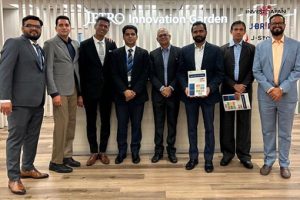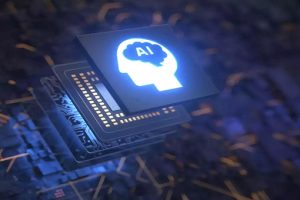The evolution of GenAI presents an enticing proposition for organizations, raising questions about how, to what extent, and in what capacity it should be integrated into their operations. As the landscape of AI continues to advance, companies of all sizes are feeling the pressure to demonstrate their adoption of these technologies to avoid falling behind the competition. However, alongside the promise of these innovations comes a host of security risks that demand the attention of executives and decision-makers. Understanding and addressing these risks is critical to safeguarding your business in the GenAI era.
Comprehending GenAI and Security
GenAI, or Generative AI, represents the next phase in AI technology, where systems learn from vast datasets to generate new code, text, and images through conversational interfaces. Each generation of AI tools brings forth its unique set of security challenges. As AI advances, so do the potential threats, especially concerning the protection of intellectual property (IP) and personal privacy.
The IP Conundrum
Intellectual property comprises an array of assets, from patented technologies to trade secrets and proprietary business processes. In the age of AI, safeguarding this intellectual property has become a multifaceted challenge. Machine learning algorithms can be trained to reverse-engineer patented technologies by analyzing their outputs and functionalities, potentially infringing upon IP rights.
Furthermore, AI’s ability to generate its IP raises an intriguing conundrum. The existing IP laws are not equipped to address the creation of IP by AI systems. In scenarios where AI generates new processes or technologies, the rights to this IP could be claimed by the AI’s developer, the user instructing the AI to create the IP, or even the AI system itself. This ambiguity carries substantial implications for businesses, impacting profitability and legal exposure.
Data Breaches and Invasive Data Collection
AI systems can be exploited to gain unauthorized access to private data. Adversarial attacks, for example, can deceive AI systems into disclosing sensitive information by inputting specially crafted data. These vulnerabilities pose a significant threat to the privacy and security of sensitive information.
AI systems are also capable of collecting and analyzing vast datasets, some of which may contain personal or sensitive data. Without appropriate safeguards, this could lead to privacy infringements and potential violations of data protection laws, entailing legal consequences and ethical questions about privacy rights in the digital age.
Mitigating Security Risks
To mitigate the security risks associated with GenAI integration, businesses must adopt robust security measures. These could include encryption, secure AI training methods, stringent access controls, and regular security audits to identify and address vulnerabilities.
For IP generated by AI, it’s advisable for businesses to seek legal counsel to comprehend their rights and potential liabilities. Establishing clear contracts and agreements can prevent disputes over AI-generated IP.
Government and regulatory bodies also have a role to play in managing these risks. They can establish regulations to protect IP and privacy, provide guidance for businesses utilizing AI, and impose penalties for violations.
As generative AI becomes increasingly prevalent in business operations, understanding and addressing the accompanying security risks is paramount. By taking proactive steps to safeguard IP and privacy, businesses can harness the power of AI while minimizing potential threats. In the era of AI, the responsibility to navigate these challenges and protect your business falls to you as an executive or decision-maker.






















